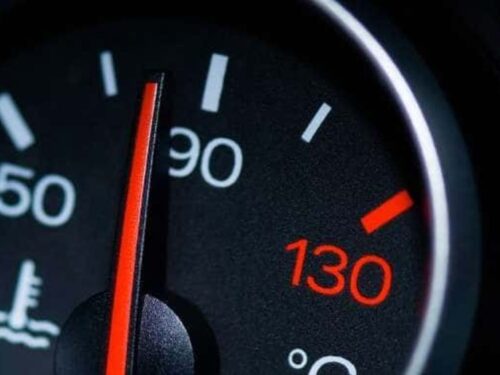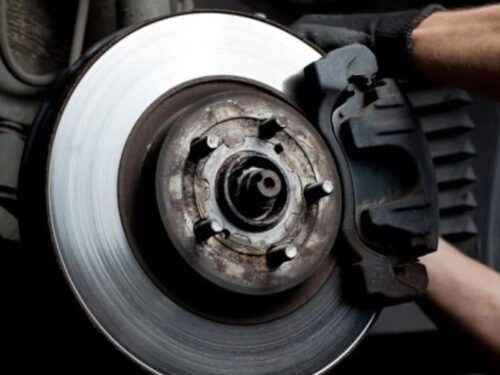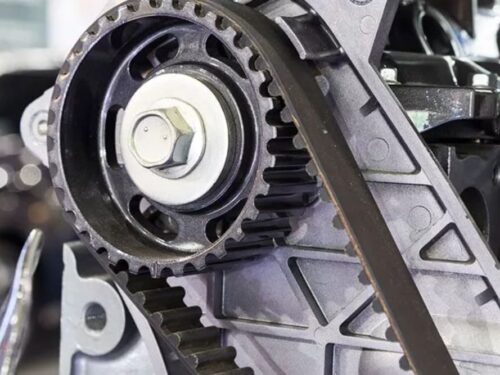
When it comes to your vehicle’s performance and safety, tires play an important role. They are the only point of contact between your vehicle and the road, impacting traction, vehicle handling, fuel efficiency, and ride comfort.
In this blog, we’ll explore different types of tires and their advantages and disadvantages, helping you choose the right fit for your vehicle.
All-Season Tires:
Pros:
- Versatility: An all-season set of tires is designed to perform adequately in various weather conditions, including dry, wet, and light winter conditions. They offer a good balance between performance and longevity.
- Cost-effective: These tires often come as standard equipment on many vehicles, making them readily available and more affordable compared to specialized tires.
- Low road noise: All-weather tires tend to have a quieter ride based on their design, making them ideal for everyday driving.
Cons:
- Limited performance: While all-season tires provide acceptable performance in different conditions, they don’t excel in extreme winter or high-performance scenarios. Specialized tires may offer superior performance in specific conditions.
- Compromised traction: All-season tires often sacrifice some traction capabilities to achieve their versatility, which can impact handling and braking performance, especially in slippery conditions.
Winter Tires:
Pros:
- Superior winter performance: Winter tires are specifically designed to offer enhanced traction and control in cold weather and icy and snowy conditions. They have unique tread patterns and softer rubber compounds that stay pliable in low temperatures.
- Improved braking: Having winter tires can significantly help to reduce braking distances on snow and ice, providing better safety during winter months.
- Tread longevity: By using winter tires only during the cold season, you can extend the life of your all-season or summer tires, as they are not subjected to harsh winter conditions.
Cons:
- Reduced performance in warm weather: Snow tires tend to have decreased performance and wear faster in warmer temperatures. It’s important to switch back to all-season or summer tires once the cold season is over.
- Increased road noise and decreased fuel efficiency: The deeper tread patterns of winter tires can generate more noise and slightly impact fuel economy compared to other tire types.
Summer Tires:
Pros:
- Enhanced dry and wet performance: Summer tires feature a unique rubber compound and tread pattern designed for optimal grip in warm weather. They provide excellent traction on dry and wet roads, enhancing handling and braking performance.
- Improved cornering capabilities: The stiffer sidewalls and specialized tread patterns of summer tires allow for sharper cornering and better control during spirited driving.
- Reduced braking distances: Summer tires offer shorter braking distances on dry pavement, increasing safety during sudden stops.
Cons:
- Limited winter performance: Summer tires are not suitable for cold weather, as their rubber compound hardens, leading to reduced traction and handling on snow or ice. Switching to winter or all-season tires is necessary in colder climates.
- Faster wear: With their softer rubber compound, summer tires tend to wear out faster, especially on abrasive road surfaces. Regular monitoring and rotation are crucial to maximize their lifespan.
Performance Tires:
Pros:
- Exceptional performance: Performance tires are designed for sports cars and high-performance vehicles, delivering outstanding grip, cornering capabilities, and precise handling. They provide an exhilarating driving experience on both dry and wet surfaces.
- Enhanced braking: These tires often feature advanced braking technologies, allowing for shorter braking distances and improved safety during aggressive driving maneuvers.
- Aesthetically appealing: Performance tires often have stylish designs and low-profile sidewalls, enhancing the overall appearance of your vehicle.
Cons:
- Reduced tread life: The softer rubber compound used in performance tires sacrifices longevity for enhanced grip and performance. They tend to wear out faster, requiring more frequent replacements.
- Harsh ride and road noise: Performance tires have stiffer sidewalls and less rubber between the road and the vehicle, resulting in a firmer and less comfortable ride. Additionally, the aggressive tread patterns can generate more road noise.
Selecting the right type of tires for your vehicle depends on various factors, including climate, driving conditions, and personal preferences. All-season tires offer versatility and affordability, while winter tires excel in cold and snowy conditions. Summer tires provide excellent dry and wet performance, and performance tires deliver exceptional grip and handling.
Understanding the pros and cons of each tire type will help you make an informed decision, ensuring optimal performance, safety, and longevity for your vehicle.
Courtesy of revolutionmotors










